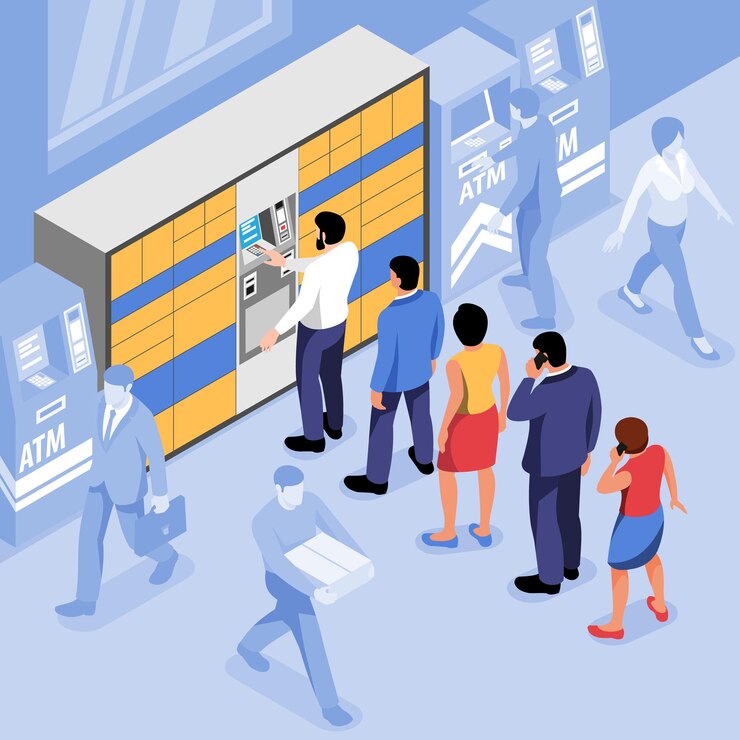
Efficient customer service is the backbone of thriving businesses. With ever-growing demands, a Queue Management System (QMS) has become essential for streamlining operations and improving customer satisfaction. In Saudi Arabia, particularly in Riyadh, advanced queue management systems are transforming how businesses interact with their customers. This blog explores the significance, benefits, and application of queue management systems in Saudi Arabia.
What is a Queue Management System?
Definition and Core Functions
A Queue Management System is a technological solution designed to organize and manage customer queues efficiently. It automates the process of assigning customers to service counters, reducing wait times and improving the overall experience.
Key Components of a QMS
- Token Issuance System: Generates tickets to manage the queue flow.
- Digital Displays: Provide real-time updates about queue status.
- Service Counters Integration: Streamlines customer allocation to the right counters.
- Reporting Tools: Offers insights into customer behavior and operational efficiency.
Benefits of Queue Management Systems
Enhanced Customer Experience
- Minimizes waiting times.
- Reduces customer frustration through clear communication.
- Improves service accuracy and speed.
Operational Efficiency
- Optimizes resource allocation by managing staff and counter utilization.
- Reduces bottlenecks during peak hours.
Data-Driven Decision Making
- Tracks customer flow and service times.
- Provides insights to identify areas for improvement.
Queue Management System in Riyadh
Adoption in the Capital
Riyadh is a hub for business, government, and healthcare services, making it a prime location for adopting Queue Management Systems in Riyadh. Many organizations are leveraging QMS solutions to enhance customer service and operational efficiency.
Industries Benefiting from QMS in Riyadh
- Healthcare: Hospitals and clinics in Riyadh use QMS to manage patient appointments and walk-ins seamlessly.
- Retail: Shopping malls and stores employ QMS to improve checkout processes.
- Banking: Banks utilize QMS to reduce wait times and provide personalized services.
- Government Services: Offices like passport centers rely on QMS for efficient public service delivery.
Queue Management System in Saudi Arabia
Nationwide Implementation
The demand for Queue Management Systems in Saudi Arabia is growing rapidly, with businesses and public institutions adopting these solutions to improve customer satisfaction.
Key Cities Adopting QMS
- Riyadh: Leads in implementing cutting-edge QMS solutions.
- Jeddah: Adopting QMS to manage high customer volumes in retail and healthcare.
- Dammam: Government offices and financial institutions are integrating QMS to enhance service delivery.
Benefits for Businesses in Saudi Arabia
- Scalability: Solutions can be tailored to suit businesses of all sizes.
- Cultural Relevance: Designed to cater to the unique needs of the Saudi market.
- Regulatory Compliance: Ensures adherence to Saudi service standards.
Advanced Features of Modern Queue Management Systems
Real-Time Updates
- Provides live updates to customers via digital displays or mobile apps.
- Ensures transparency and reduces anxiety associated with waiting.
Multi-Channel Integration
- Integrates seamlessly with mobile apps, websites, and kiosks.
- Allows customers to book slots remotely.
AI-Powered Predictions
- Uses artificial intelligence to predict peak times and customer flow.
- Helps in better staff planning and resource allocation.
Cloud-Based Solutions
- Enables remote management and scalability.
- Reduces infrastructure costs.
Contactless Technologies
- Ensures safe queue management with minimal physical interaction.
- Particularly relevant post-pandemic.
Implementing a Queue Management System in Saudi Arabia
Steps to Success
- Understand Your Business Needs: Assess customer volume and service requirements.
- Select the Right Solution: Choose a QMS tailored to your industry.
- Train Your Team: Ensure staff are well-versed in using the system.
- Monitor and Optimize: Use analytics to refine processes and improve efficiency.
Challenges to Address
- Resistance to change among employees.
- Initial costs for setup and training.
- Continuous updates and maintenance requirements.
Future of Queue Management Systems
AI and Machine Learning
- Predictive analytics for anticipating customer needs.
- Automated adjustments to optimize queue flow.
Mobile Integration
- Enhanced customer convenience with mobile apps for booking and updates.
IoT-Enabled Solutions
- Integration with smart devices to improve operational efficiency.
Focus on Customer-Centric Designs
- Tailored interfaces for different industries.
- Emphasis on personalized customer experiences.
Conclusion
Queue management systems are transforming customer service in Saudi Arabia, especially in cities like Riyadh. These solutions not only enhance customer satisfaction but also improve operational efficiency for businesses across industries. As technology advances, the future of queue management looks even more promising, paving the way for smarter, more customer-focused solutions.
FAQs
1. What is the purpose of a queue management system?
A queue management system helps streamline customer flow, reduce waiting times, and improve overall service efficiency.
2. Why is QMS important in Riyadh?
Riyadh, being a business and administrative hub, faces high customer volumes. A QMS ensures efficient service delivery and enhanced customer experiences.
3. How does QMS benefit businesses in Saudi Arabia?
It improves customer satisfaction, optimizes staff utilization, and provides valuable insights for decision-making.
4. Can QMS be tailored to specific industries?
Yes, modern QMS solutions are highly customizable to meet the unique needs of industries like healthcare, retail, banking, and government services.
5. What are the latest trends in queue management systems?
AI-powered predictions, mobile integration, and contactless technologies are some of the latest trends shaping the future of queue management.





Leave a Reply